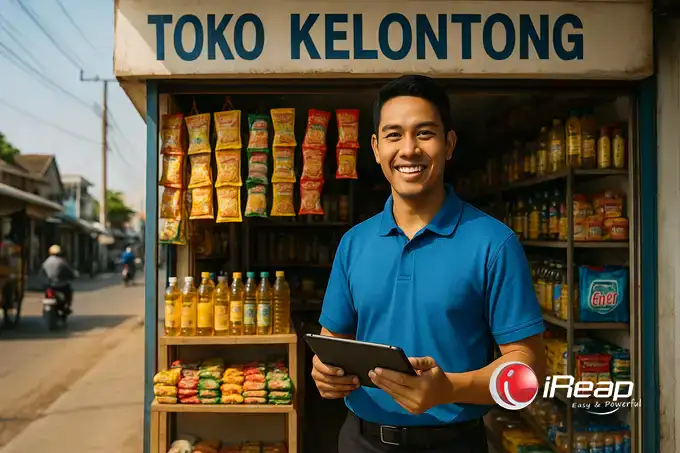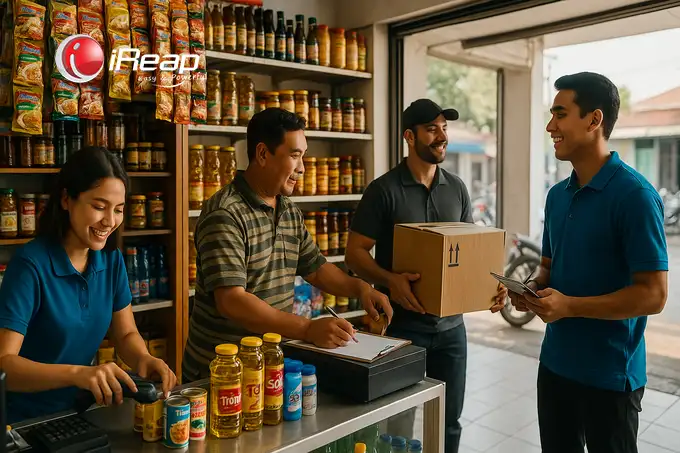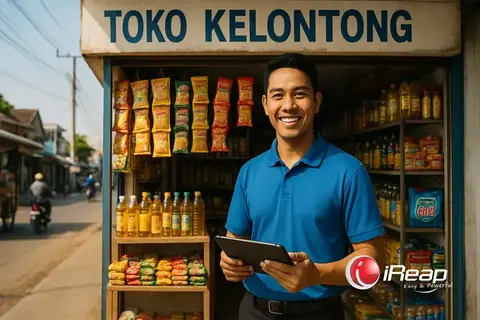
After a decade of navigating the world of FMCG (Fast-Moving Consumer Goods) sales, I’ve come to realize one undeniable truth: there’s a distinct pattern that emerges in almost every store I’ve visited.
From tiny roadside kiosks to sleek modern minimarkets, each store carries its own character. Yet, if you look closer, you’ll find that the “fussiest” stores share one undeniable trait: they’re the busiest, the most resilient, and the most attuned to the rhythm of business.
The So-Called ‘Demanding’ Stores
Every field salesperson has encountered this type of store—the ones that demand bigger discounts, special prices, or complain when deliveries arrive late. Sometimes they’ll even insist on rearranging displays or renegotiating the prime shelf spots.
At first glance, they seem difficult and full of demands. But over years of interaction, I’ve realized something deeper: these stores aren’t being difficult—they’re safeguarding their own business rhythm.
They Don’t Complain Without Reason
If you pay closer attention, you’ll notice they rarely speak without purpose. They know exactly which products the mothers in the neighborhood will look for tomorrow morning. They understand when to restock instant noodles, and when soap should be moved to the front shelf.
They grasp the flow of goods within their racks. Even before a promotion starts, they’re already calculating how many purchase orders to place next week.
So, when a store requests “please deliver before 9 AM” or “don’t place this display in the back,” it’s not baseless—it’s their way of maintaining an efficient ecosystem of operations.
Behind Every Request Lies Responsibility
Often, we field salespeople only see the surface—the rush, the demands for discounts, or the urgency for priority deliveries. Yet behind all that lies a tremendous weight of responsibility.
A store isn’t merely a place of commerce—it sustains livelihoods. There’s the cashier whose income depends on sales volume, the stock assistant working overtime when new supplies arrive, and the local courier who earns from every delivery note.
When that store’s business engine runs smoothly, so do the lives that revolve around it.
Field Sales: More Than Just Chasing Purchase Orders

As field salespeople, our role extends far beyond collecting purchase orders or chasing invoices. Our true task is to keep that wheel turning.
Sometimes it means helping with restocking, rearranging displays, introducing new products, or simply listening to a store owner vent about competitor prices. From such moments, trust is born—and partnerships are built for the long run.
The best salesperson isn’t the one who closes the most deals, but the one who understands how to keep every link in the supply chain in motion.
A Pattern That Never Fails
Across countless stores I’ve encountered, the pattern remains clear: the stores that seem most demanding are often the busiest and most enduring.
They ask for more, they question more, and they demand excellence—but they’re also deeply engaged, proactive, and possess a sharp business instinct. They know exactly when products will sell, when to switch suppliers, and when to restock before demand surges.
To us in the field, such stores are not obstacles—they are our most valuable business partners.
An Interdependent Ecosystem
The FMCG industry in Indonesia thrives because of millions of small stores and mom-and-pop shops. They form the backbone of daily product distribution across the nation.
When even one store ceases operation, the ripple effect is immense: distributors lose channels, salespeople lose clients, couriers lose routes, and consumers lose convenience.
That’s why these stores matter—not just to corporations, but to the entire local economy.
Preserving the Ecosystem Requires Collaboration
In the field, I’ve learned that this ecosystem cannot function in isolation.
- Stores rely on salespeople for supply and product insights.
- Salespeople rely on stores to keep the retail network alive.
- Distributors rely on both to ensure products reach consumers.
Once one link weakens, the entire chain slows down. This is where our true role lies—not just as sellers, but as guardians of balance within the ecosystem.
The Common Traits of Long-Lasting Stores
| Characteristic | Description |
|---|---|
| Active & Analytical | Always asking about prices, requesting promotions, and offering feedback to suppliers. |
| Market-Savvy | Quick to respond to shifts in consumer demand and purchasing behavior. |
| Relationship-Oriented | They don’t just buy—they build long-term, two-way communication with sales and distributors. |
For us, these insights are invaluable. Stores like these often act as the market’s barometer.
If they start ordering more, demand is likely on the rise. If they begin ordering cautiously, it may signal price sensitivity in the market.
A Reflection for Sales Professionals

Many assume that the world of sales revolves solely around targets and numbers. But behind every sales invoice lies a multitude of intertwined human stories.
When you help a store operate more efficiently, you’re actually keeping the livelihoods of many families alive.
So never underestimate the value of your small role in the field. Without these tiny cogs, even the grandest industry would come to a halt.
Conclusion
The FMCG world is fast-paced, dynamic, and full of human interaction. Yet amidst the hustle, one truth remains: the businesses that endure aren’t necessarily the biggest—they’re the ones that care the most.
Care for their stock, their customers, their suppliers, and everyone whose life depends on that ever-turning wheel of trade.
So if you’re a field salesperson, remember—our mission isn’t just to chase purchase orders, but to keep Indonesia’s retail ecosystem turning.



